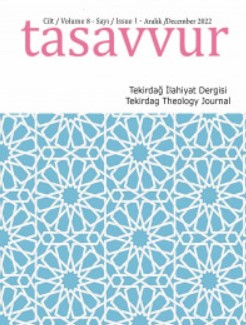Kur’ân’da Güçsüzlüğü İfâde Eden Fakîr, Miskîn, Yetim, Köle ve Müstazʻaf Kavramlarına Genel Bir Bakış
An Overview of the Concepts of the Poor, Needy, Orphan, Slave and Mustadʻaf Expressing Weakness in the Qur'an
Author(s): Burhan İŞLİYENSubject(s): Islam studies, Hermeneutics, Qur’anic studies
Published by: Tekirdağ Namık Kemal Üniversitesi İlahiyat Fakültesi
Keywords: Tafseer; Qur’an; the Poor; the Orphan; the Slave; Mustadʻaf;
Summary/Abstract: The Qur'an began to descend in the Arabian Peninsula in a period when the traditions of ignorance were dominant. In the period of ignorance, when weak and powerless people were oppressed, excluded, exploited, humiliated and subjected to various oppressions, being right was not enough. It was also necessary to have the power and strength to get his due. In such a period when the strong are generally considered right, the Qur'an considers every individual created by Allah as a valuable being. As a matter of fact, there are many basic principles in the Qur'an that reinforce the feelings of brotherhood among individuals, strengthen the social fabric and increase trust in society. One of these basic principles is to defend the rights of every weak person regardless of the person's lineage, race, gender and status. In this context, in our study, first of all, the analysis of the meaning of the word of poor in the semantics of the Qur’an, the attitude of the Prophet towards poverty and wealth and which one is superior has been briefly touched upon.
Journal: Tasavvur Tekirdağ İlahiyat Dergisi
- Issue Year: 8/2022
- Issue No: 1
- Page Range: 133-160
- Page Count: 28
- Language: Turkish

